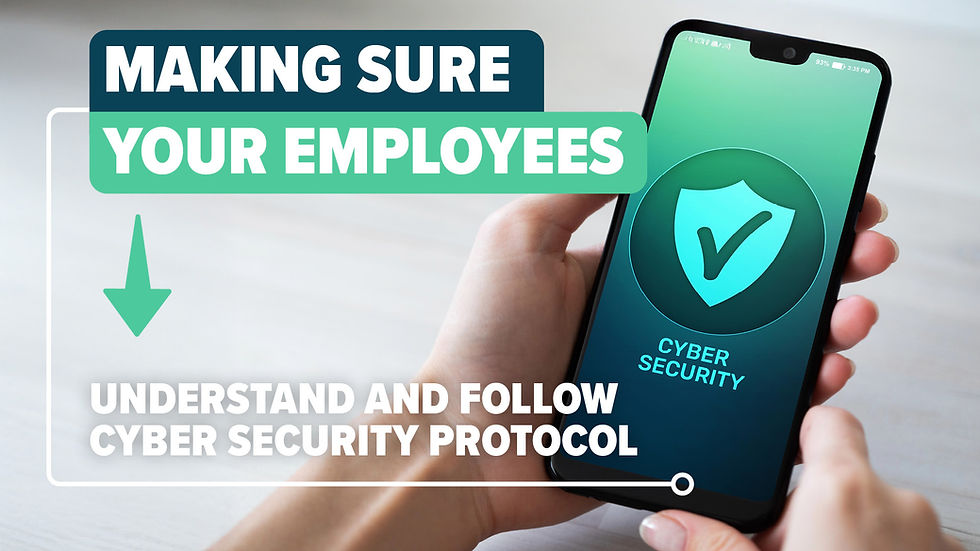Are your employees your security’s weakest link?
- Lewis Bleasdale
- Mar 3, 2025
- 2 min read

Let me ask you this: Do you lock your front door when you leave your home?
Of course you do.
But what if you return and discover that a window was left open? It would be like leaving the door unlocked, wouldn't it?
Now, consider your business.
You've likely invested in strong cybersecurity measures, such as robust passwords, firewalls, and the latest software updates. However, if your employees unintentionally leave "windows" open, all that security is compromised.
It's not about assigning blame – it's about being aware. The reality is that your employees could be the greatest security risk, without even knowing it.
With more people working remotely, studies indicate that four out of five employees use their personal devices, like phones, tablets, or laptops, for work. It makes sense. Why not utilize the devices they already have?
Here's the issue: Your employees' personal devices likely lack the security measures implemented in the office. Their phones and laptops may have weak passwords, outdated software, or might be connected to unsecured Wi-Fi networks. This situation is ideal for hackers.
And here's where it becomes alarming…
Two out of five employees acknowledge downloading customer data onto their personal devices. This means sensitive data is leaving the protection of your business, becoming vulnerable to unauthorized access.
If that's not concerning enough, consider this: Over 65% of employees admit to only following cybersecurity rules "sometimes" or "never". This includes forwarding work emails to personal accounts, using their phones as Wi-Fi hotspots, or disregarding data handling guidelines when using AI tools.
Passwords present another challenge, with nearly half of employees using the same passwords across different work accounts. Even more troubling, over a third use the same passwords for both work and personal accounts.
Imagine a hacker accessing an employee's social media account and using the same password to infiltrate your business systems. It's a disaster waiting to occur.
So, what steps can you take?
Education is crucial.
Begin by ensuring your team comprehends the significance of cyber security. Most individuals don't intentionally break the rules; they simply aren't aware of the risks. Clarify that seemingly harmless habits (such as reusing passwords or working on public Wi-Fi) can lead to serious consequences.
Establish security guidelines that are straightforward, clear, and easy to adhere to. For instance, instruct your team to:
· Utilize a password manager to generate strong, random, and unique passwords for each of their work accounts
· Access work systems only on secure, approved devices
· Avoid forwarding work emails to their personal accounts
Additionally, ensure your employees receive regular training sessions to keep cyber security top of mind, and remember to acknowledge good practices. If someone identifies a suspicious email or devises a smart method to protect sensitive data, make sure to inform the rest of your team.
Cyber security is a collective responsibility.
By equipping your employees with the proper tools and training, you can transform them into your first line of defense rather than a vulnerability.
If you need assistance keeping your team informed about the latest security threats, feel free to reach out.







Comments